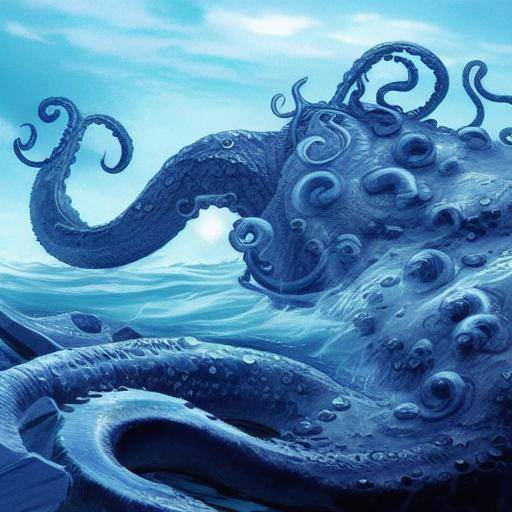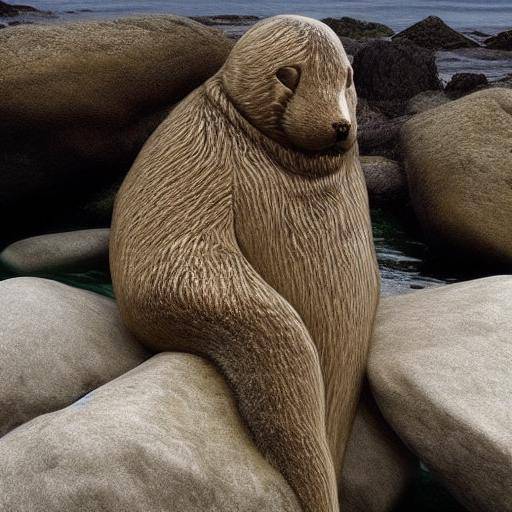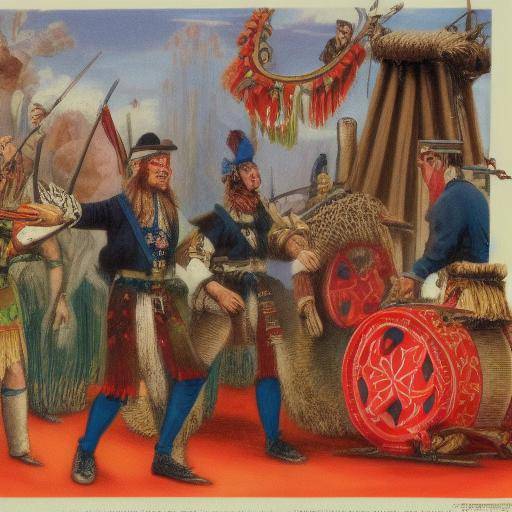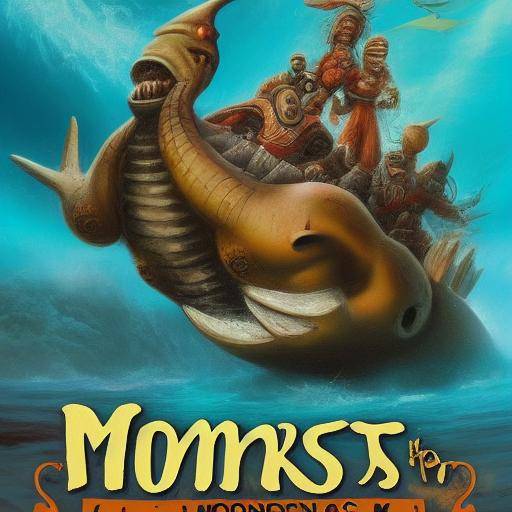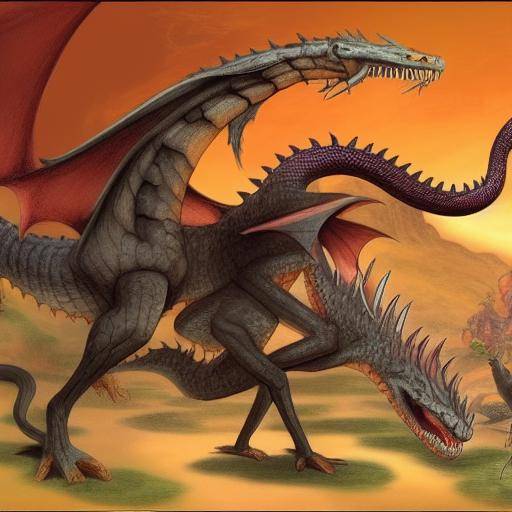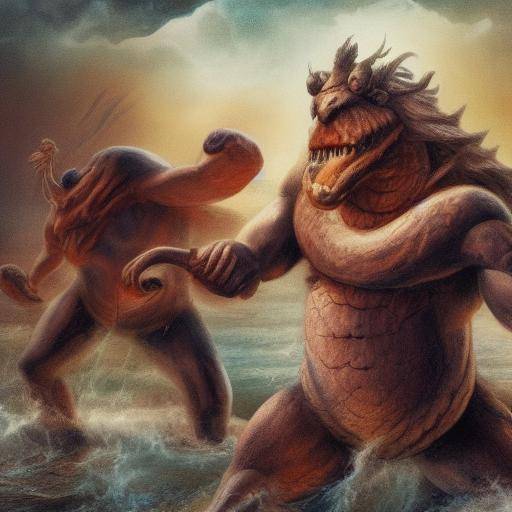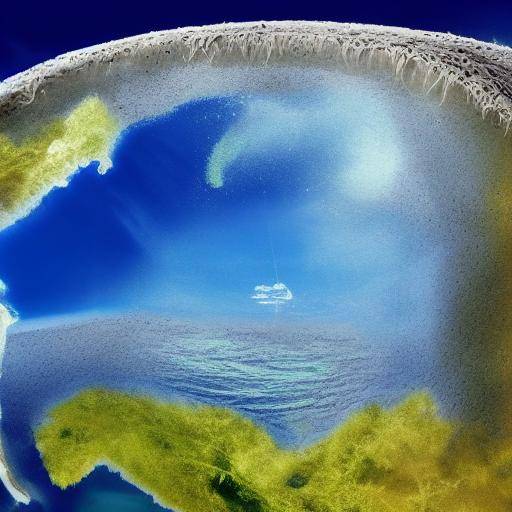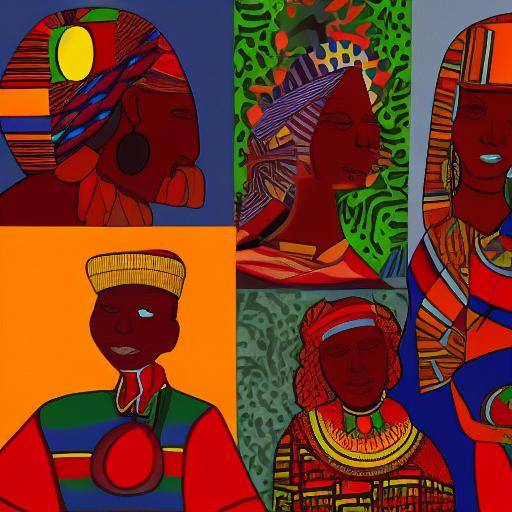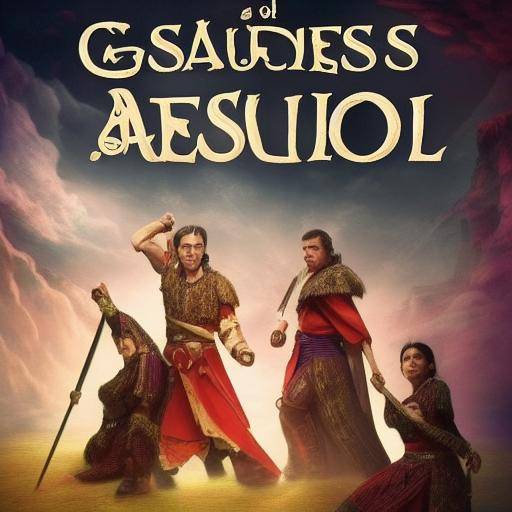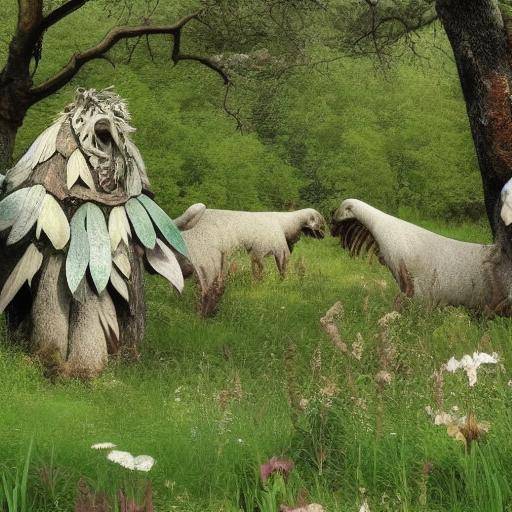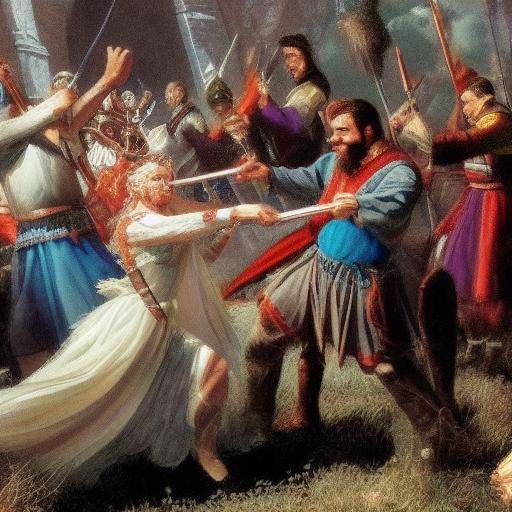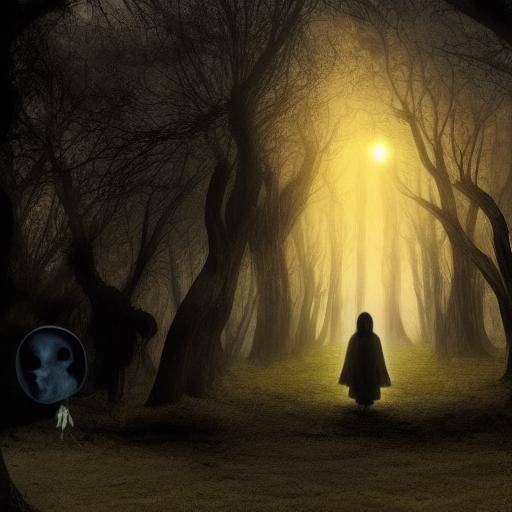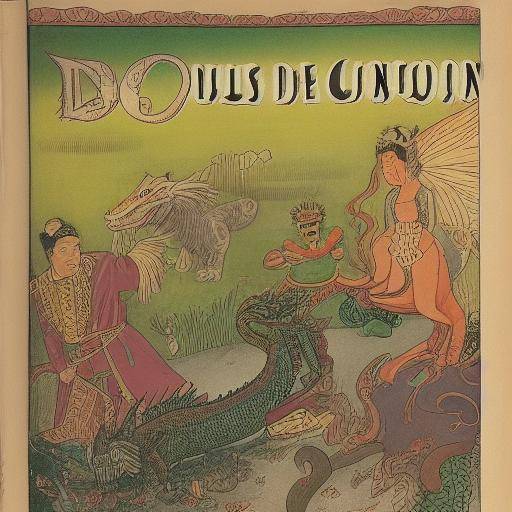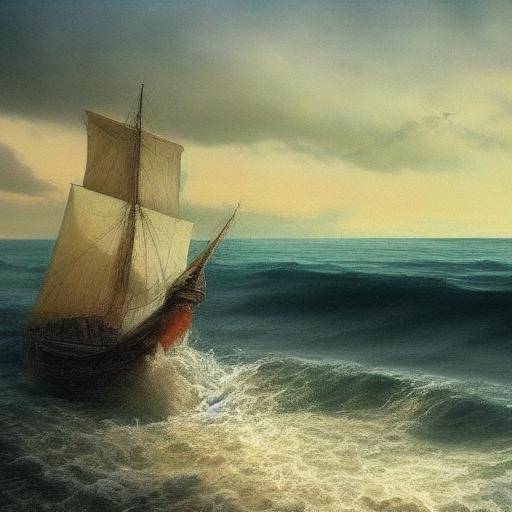
The sea has been, since time immemorial, an inexhaustible source of inspiration for writers and poets. Its mysterious waters, its immensity and power have been embodied in countless literary works that endure over time. In this article, we explore the fascinating relationship between the sea, literature and legends, discovering immortal works that have captured the essence of the "primary ocean" in imperishable pages.
Introduction
The sea, with its vastness and mystery, has been a recurring theme in literature throughout history. From the epic odysseys narrated by Homer in the "Iliad" and the "Odyssey", through the deep reflections of Herman Melville in "Moby Dick", to the romantic representations in the works of Julio Verne, the sea has been a powerful scenario that has given life to an innumerable number of stories.
In this article, we will explore the influence of the sea in literature, the legends that have arisen around its waters and how authors of different eras and cultures have translated the magnificence and mystery of the sea into their works. In addition, we will discover the transcendence of these literary creations and how they have endured over time, becoming authentic immortal legends.
History and Background
Since ancient times, the sea has played a fundamental role in the culture and literature of many civilizations around the world. From the ancient epopeyas of Greek mythology to the narratives of travel and discoveries of the era of exploration, the sea has been a central element in the construction of epic stories and myths that have lasted throughout the centuries.
The influence of the sea in classical literature
In classical literature, the sea has been represented as a symbol of freedom, adventure and danger. In the "Iliad" and the "Odyssey", Homer describes the journeys of Ulysses across the Mediterranean, facing the whims of the gods and the dangers of the ripe waters. These epopeyas marked the beginning of a long tradition of maritime epic accounts that have influenced later literature.
The Age of Exploration and its Maritime Chronicles
During the era of exploration, the sea acquired an unprecedented prominence in literature, thanks to the chronicles of sailors and explorers who ventured into unknown seas in search of new routes and treasures. Works like "The Christopher Columbus Navigation Diary" and "The Turn to the World of Magellan and Elcano" portray the exploits and difficulties of the sailors in their quest to conquer the oceans.
The sea as a metaphor in romantic and modern literature
In the nineteenth century, the sea became a powerful symbol used by romantic writers to express the struggle of man against nature and destiny. Authors like Edgar Allan Poe, Herman Melville and Julio Verne explored the darkest and most enigmatic aspects of the sea in works such as "Narrative of Arthur Gordon Pym", "Moby Dick" and "Twenty thousand leagues of underwater travel", respectively, creating stories that captivated entire generations.
Literary representations of the sea
The sea has been approached in various forms in literature, reflecting the different perceptions and emotions that generate its waters. Some of the most outstanding representations of the sea in literature include:
- The sea as a symbol of freedom: In many works, the sea is interpreted as an escape from the limitations of the firm earth, representing the possibility of adventure and discovery.
- The sea as a source of danger: In navigation and travel narratives, the sea usually evokes a sense of danger and mystery, where natural forces can manifest themselves as implacable adversaries to the characters.
- The sea as a reflection of the human soul: Some writers have used the sea as a metaphor to explore the complexities of the human soul, representing its calm or agitated waters as symbols of inner peace or emotional conflict.
- The sea as a scenario of scientific exploration: In science fiction literature, the sea has been the scene of multiple underwater adventures and explorations of mysterious creatures, thus expanding their narrative possibilities.
Immortal Legends of the Sea in Literature
Throughout history, numerous literary works have created true legends around the sea, capturing its essence immortally. These works have endured in the collective memory and left an imprint in universal literature. Some of the most outstanding immortal legends of the sea include:
"Moby Dick" by Herman Melville
Published in 1851, this novel is considered one of the masterpieces of universal literature. The story of the obsessive captain Ahab and his search for the legendary white cachalote, Moby Dick, has captivated readers of all generations. Through this epic narrative, Melville explores human obsession, the struggle against natural forces and destiny, making the sea an indisputable protagonist of the plot.
July Verne's "Twenty thousand leagues"
Posted in 1870, this science fiction novel immerses us in the depths of the ocean on board the Nautilus submarine, commanded by the enigmatic Captain Nemo. Through this fascinating account, Verne takes readers to explore the mysteries of the sea, its submarine creatures and landscapes, surprisingly anticipating future scientific and technological discoveries.
Ernest Hemingway
This short novel, published in 1952, narrates the story of Santiago, a lone fisherman who undertakes an epic battle with a big fish on the high seas. With his concise and evocative style, Hemingway portrays the struggle of man against nature, courage and dignity in adversity, creating a timeless work that has left a profound mark on contemporary literature.
Influence of the sea in contemporary literature
In the current literature, the sea continues to inspire authors from around the world, serving as a scenario for stories that explore universal themes such as adventure, tragedy, survival and identity-seeking. Recent works like "The Light You Can't See" by Anthony Doerr, "The Island of Alice" by Daniel Sánchez Arévalo and "The Door" by Magda Szabó, among others, demonstrate the perpetual fascination and relevance of the sea in literary creation.
Conclusion
In conclusion, the sea has been and will remain an inexhaustible source of inspiration for literature and legends. From the narrative epics of antiquity to modern scientific and emotional explorations, the sea has played a central role in the construction of stories that have endured over time. The literary works that have captured the greatness and mystery of the sea have become authentic immortal legends, continuing their legacy in the pages of universal literature.
Thanks to the depth and diversity of the representations of the sea in literature, these works not only entertain, but also invite us to reflect on the human condition and the relationship of man with nature. Thus, the sea remains a powerful symbol that transcends time and cultures, enriching the literary acquis and keeping alive the flame of imagination and creativity.
FAQS
**1. Why is it such a recurrent theme in literature?**The sea has been a fundamental element in human life since time immemorial, being a source of inspiration, sustenance and danger to humanity. This wide range of meanings and sensations associated with the sea makes it a deeply attractive theme for writers, allowing them to explore universal themes such as adventure, freedom, fighting nature and seeking identity.
**2. What are some of the most famous legends of the sea in literature?**Some of the most iconic legends related to the sea in literature include "Moby Dick" by Herman Melville, "Twenty thousand leagues of underwater travel" by Julio Verne and "The Old and the Sea" by Ernest Hemingway. These works have left an indelible mark on literary culture, capturing the essence of the sea in an unforgettable way.
**3. How has sea representation evolved in literature over time?**The representation of the sea in literature has evolved significantly over the centuries, reflecting the changing cultural and emotional perceptions of the ocean. From its role as a scenario of epopeyas and ancient myths to its exploration as an emotional and scientific metaphor in contemporary literature, the sea has been approached in a diverse and enriching way.
**4. What is the impact of maritime literature on current society and culture?**Maritime literature has had a profound impact on contemporary society and culture by offering reflections on the human being, nature and challenges of life. These works have provided not only entertainment, but also a greater understanding of the human relationship with the sea and the natural world, thus enriching our appreciation of life and nature.
**5. What are some examples of how the sea has been portrayed in modern literature?**Modern literature has explored the sea from various perspectives, including science fiction, emotional exploration and the chronicle of contemporary realities. Works like "The Light You Can't See" by Anthony Doerr, "The Island of Alice" by Daniel Sánchez Arévalo and "The Door" by Magda Szabó are examples of how the sea continues to be a source of inspiration and intriguing exploration in the current literature.
**6. How has the sea influenced writers and their creative process?**The sea has influenced writers by providing them with an inexhaustible source of metaphors, landscapes and atmospheres for their works. In addition, real or imagined experiences at sea have inspired emotional and existential interpretations that have enriched the depth and authenticity of their stories, thus reaching their readers significantly.
In short, the sea is a theme that has captured the imagination and creativity of writers over the centuries, leading to the creation of immortal works that have transcended time and enriched the literary experience of entire generations. His lasting influence in literature continues to captivate readers and offer valuable reflections on the human condition and our relationship with the natural world.

